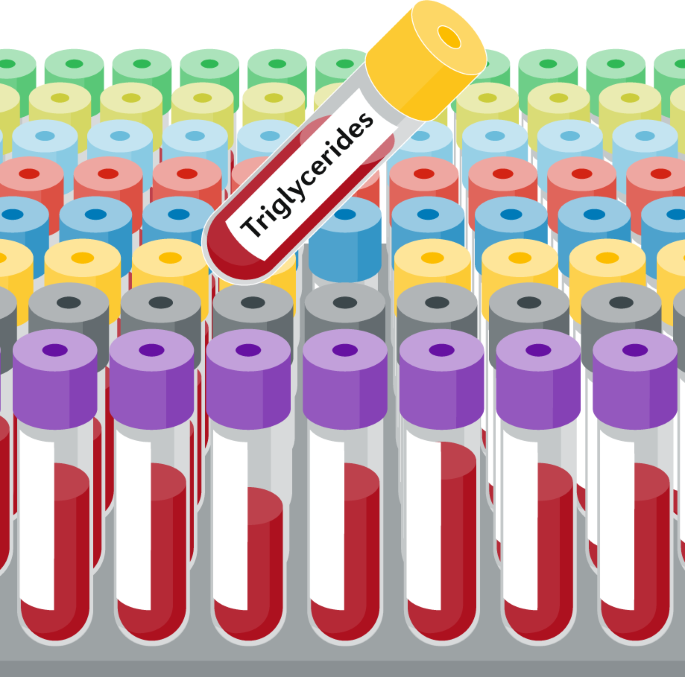
- Select a language for the TTS:
- UK English Female
- UK English Male
- US English Female
- US English Male
- Australian Female
- Australian Male
- Language selected: (auto detect) - EN
Play all audios:
Access through your institution Buy or subscribe Use of icosapent ethyl is associated with a reduction in triglyceride levels and ischaemic events, including cardiovascular death, according
to the results of the REDUCE-IT trial presented at the AHA Scientific Sessions. “The broad population of patients with elevated triglyceride [levels] we studied makes me believe that these
results are widely applicable to millions of patients around the world,” comments lead investigator, Deepak Bhatt. In the JELIS trial, eicosapentaenoic acid was shown to lower the risk of
major coronary events in a Japanese population with hypertriglyceridaemia. The REDUCE-IT trial was designed to test the effect of icosapent ethyl — a highly purified form of eicosapentaenoic
acid — on cardiovascular outcomes. The trial included a total of 8,179 patients with established cardiovascular disease or diabetes mellitus and other risk factors who had been receiving
statin therapy. Initial enrolment included patients who had a fasting triglyceride level of 135–499 mg/dl and an LDL-cholesterol level of 41–100 mg/dl, but as the study progressed, the
minimum triglyceride threshold was increased to 200 mg/dl. The baseline median levels of triglycerides and LDL-cholesterol were 216.0 mg/dl and 75.0 mg/dl, respectively. “The triglyceride
entry criteria are important because they are a signal of potential residual risk that is not being managed by statin treatment,” comments Robert Hegele, who was not involved in the study.
“There is no approved therapy for the residual risk in these patients.” This is a preview of subscription content, access via your institution ACCESS OPTIONS Access through your institution
Access Nature and 54 other Nature Portfolio journals Get Nature+, our best-value online-access subscription $32.99 / 30 days cancel any time Learn more Subscribe to this journal Receive 12
print issues and online access $209.00 per year only $17.42 per issue Learn more Buy this article * Purchase on SpringerLink * Instant access to full article PDF Buy now Prices may be
subject to local taxes which are calculated during checkout ADDITIONAL ACCESS OPTIONS: * Log in * Learn about institutional subscriptions * Read our FAQs * Contact customer support
REFERENCES ORIGINAL ARTICLE * Bhatt, D. L. et al. Cardiovascular risk reduction with icosapent ethyl for hypertriglyceridemia. _N. Engl. J. Med._ https://doi.org/10.1056/NEJMoa1812792 (2018)
Article PubMed PubMed Central Google Scholar FURTHER READING * Reiner, Ž. Hypertriglyceridaemia and risk of coronary artery disease. _Nat. Rev. Cardiol._ 14, 401–411 (2017) Article CAS
Google Scholar Download references AUTHOR INFORMATION AUTHORS AND AFFILIATIONS * Nature Reviews Cardiology http://www.nature.com/nrcardio/ Gregory B. Lim Authors * Gregory B. Lim View
author publications You can also search for this author inPubMed Google Scholar CORRESPONDING AUTHOR Correspondence to Gregory B. Lim. RIGHTS AND PERMISSIONS Reprints and permissions ABOUT
THIS ARTICLE CITE THIS ARTICLE Lim, G.B. Hypertriglyceridaemia — REDUCE-IT with icosapent ethyl. _Nat Rev Cardiol_ 16, 1 (2019). https://doi.org/10.1038/s41569-018-0129-2 Download citation *
Published: 27 November 2018 * Issue Date: January 2019 * DOI: https://doi.org/10.1038/s41569-018-0129-2 SHARE THIS ARTICLE Anyone you share the following link with will be able to read this
content: Get shareable link Sorry, a shareable link is not currently available for this article. Copy to clipboard Provided by the Springer Nature SharedIt content-sharing initiative







